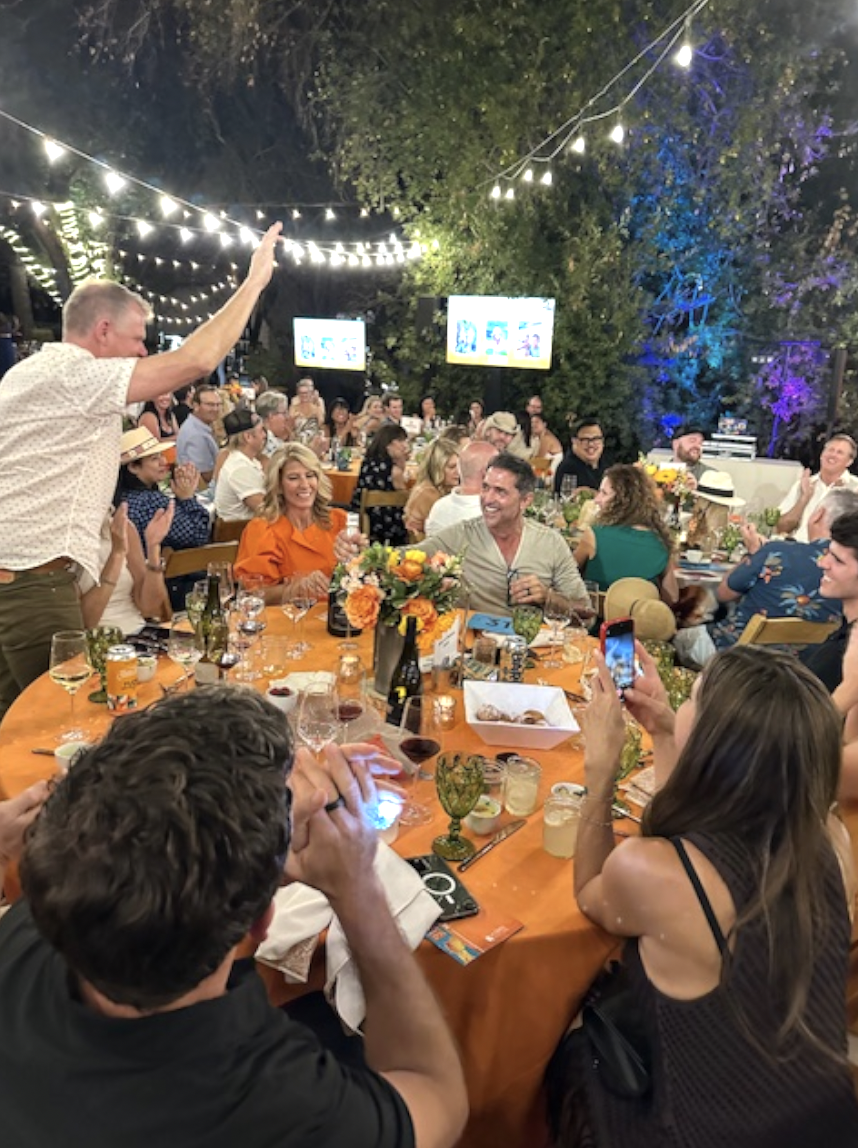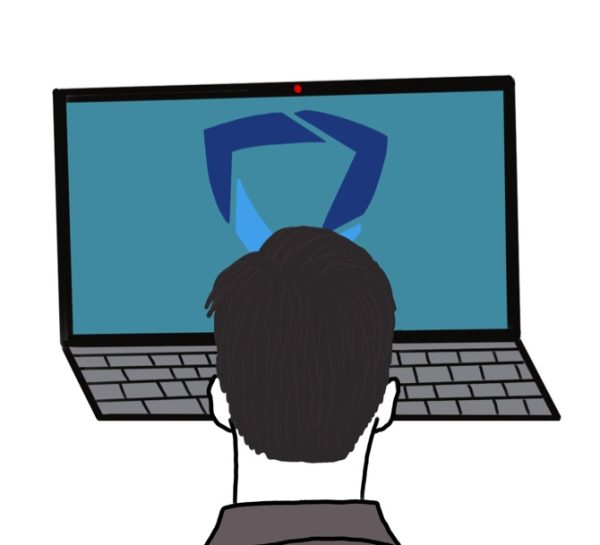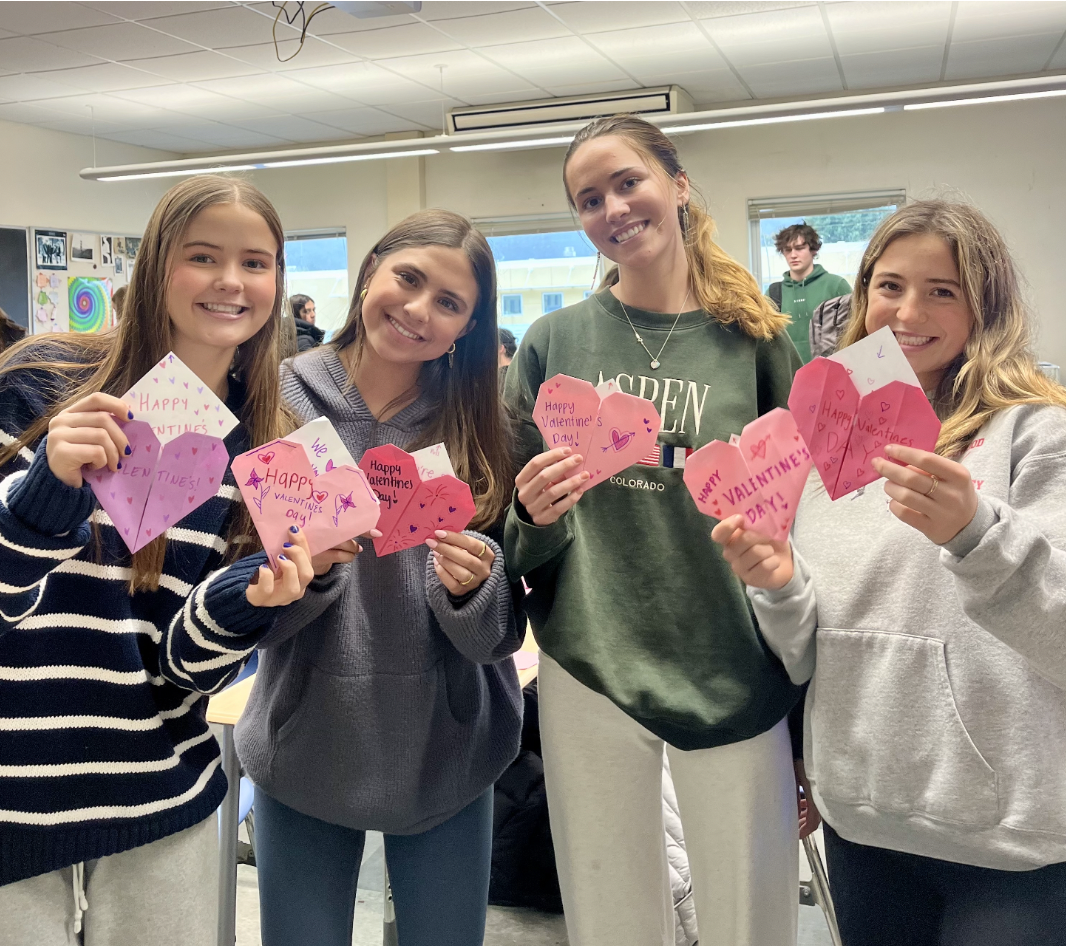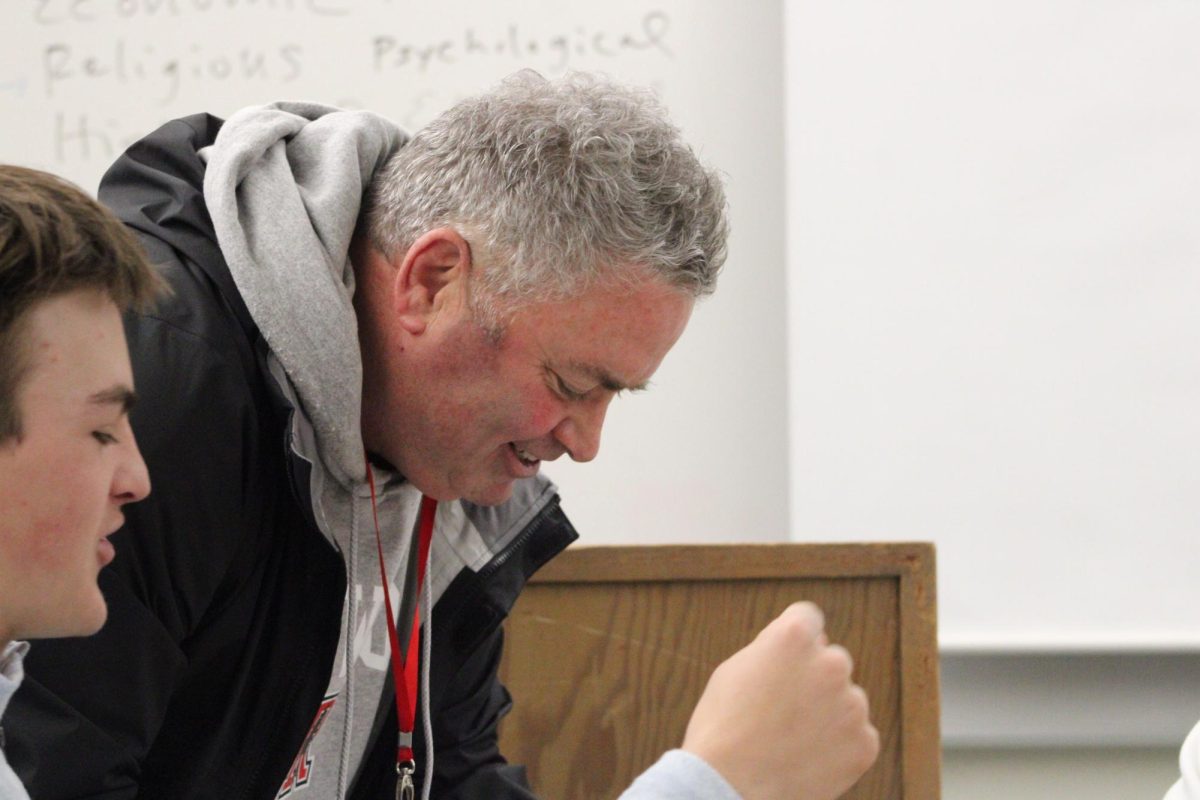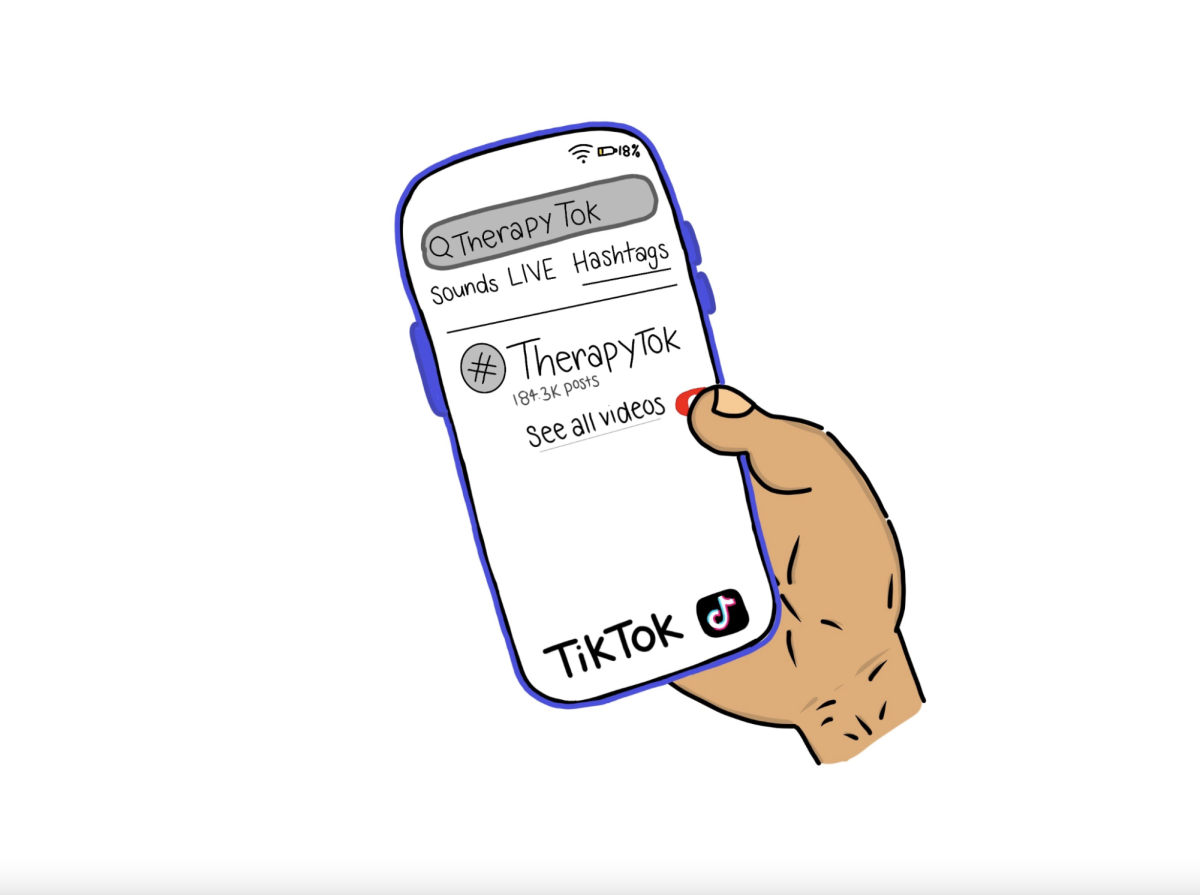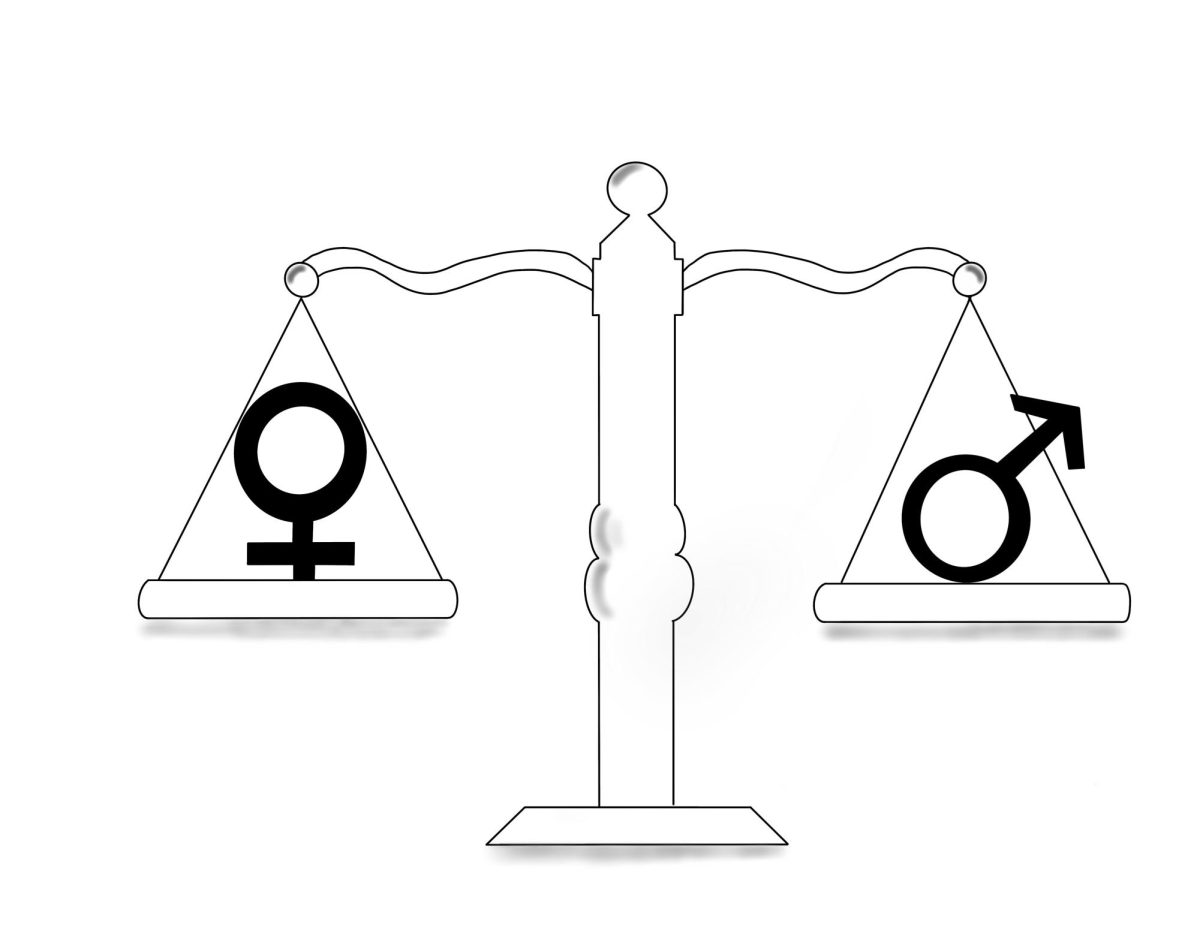Everyone has a favorite song, but why is that? Why do certain songs have the power to make people so happy? It turns out there are several factors that determine one’s favorite songs including the emotional connections and experiences associated with each tune.
Jeff Derby, a music teacher at Hall Middle School, explained that an enjoyable aspect of music is that each song represents something comforting and provides the listener with reassurance. Music has the unique ability to make the brain feel a sense of safety in familiar songs due to their predictability.
“[Music] just makes you feel good. [I love] hearing different beats and grooves,” Derby said. “If you listen to music that has lyrics, there’s a story behind every single song. Maybe that [story] relates directly to your [own].”
Along with creating a sense of familiarity, music provides a way to regulate or process your emotions. Psychology Today acknowledges that even sad music can be beneficial because it provides listeners with an outlet for their emotions while disengaging them from their own challenges. Additionally, The British Academy of Sound Therapy found that only nine minutes of music with a fast tempo and positive lyrical content, made people feel happier, and just 13 minutes of sad, relatable music was enough to make listeners feel a sense of relief and emotional stability.
Sophomore Tatum McPeek uses music to combat her own negative feelings and help her overcome internal struggles. McPeek has been enamored with music since she started singing and playing piano in first grade, and she finds comfort in listening and singing different music.
“I like to sing when I want to let out emotion. I like listening to music on a regular basis because I think music really helps me relieve stress,” McPeek said. “Every time I listen to music, it brightens my mood. Even if I’m not stressed, it makes me feel more productive.”
In addition to music’s ability to soothe emotional pain or uplift, listening to comforting songs has been proven to reduce physical pain and relieve tension. Researchers at the University of Alberta, Canada found that children who listened to music while being put on intravenous therapy felt significantly less pain and distress than those who did not. Furthermore, a similar study published by Pediatric Surgery International, found that pediatric patients who listened to pop hits 30 minutes prior to surgery demonstrated notably less pain during recovery. One possible explanation is that music releases endorphins, or the “happiness hormone,” which have been linked to reducing pain. Derby also finds that music has the power to bring him joy, even when he is struggling.
 “Sometimes I write and play music because I’m in a great place and things are going really well. And conversely, the opposite. When you’re feeling down, and you need to find an escape from the daily grind, [you can] express yourself through your instruments,” Derby said.
“Sometimes I write and play music because I’m in a great place and things are going really well. And conversely, the opposite. When you’re feeling down, and you need to find an escape from the daily grind, [you can] express yourself through your instruments,” Derby said.
The type of music an individual is drawn to during challenging times can also relate to their personality. In a study consisting of over 35,000 people, Dr. Adrian North, a professor at Heriot-Watt University in Edinburgh, United Kingdom (U.K.), found links between having particular characteristics and enjoying specific genres of music. While this does not apply to everyone, his study found that people who enjoyed listening to classical music were more likely to be creative, intelligent and have a higher level of self esteem. Pop fans, on the other hand, were typically more outgoing and social, but also more likely to get nervous. This was most similar to rap fans, who were also outgoing and had high self-esteem.
These conclusions are explained by the fact that, when someone hears a song that they love, the hippocampus is activated. The hippocampus is located in the temporal lobe of the brain and is responsible for storing long term memories, controlling temperament or personality and processing emotion. Since that part of the brain is growing so rapidly during teenage years, scientists also believe that much of the music individuals listen to during their adolescent years will remain their favorites for life.
Social Issues teacher David Plescia and many others still listen to the music of their teenage years, as it brings joy and reminds them of positive experiences from their youth.
“Music is a way of connecting people because of the songs and experiences that you share [with others],” Plescia said. “If [a group is listening] to a fast, exciting song when going out with their friends on a Friday night, then they’ll have that [same] feeling of euphoria when they listen to the song [again]. There’s a greater sense of familiarity and belonging [when listening to certain music].”

Because they feel so much nostalgia surrounding music, teenagers also tend to be the age group most influenced by and exposed to music. According to Common Sense Media, 74 percent of teens claim they listen to music more than the average person, and 82 percent of teens listen to music every day.
![]() “I feel like there’s a combination of things that make high schoolers [listen to more music.] They have a lot going on in their lives, and they also probably have more access [to music] than when they were younger,” McPeek said.
“I feel like there’s a combination of things that make high schoolers [listen to more music.] They have a lot going on in their lives, and they also probably have more access [to music] than when they were younger,” McPeek said.
Since high school can be difficult, it is crucial for students to realize that listening to their favorite songs can give them the power to change their mood and overcome obstacles. Music is critical in destressing, connecting with others and persevering through challenges, and it remains an accessible tool that students can use as an outlet.
“Being able to relate to what you are hearing is what captivates young people to listen to music all the time, and it inspires them to get through difficult times,” Derby said. “Words can’t [always] say how you’re truly feeling or describe the happiness or pain you’re going through. I think music does a really good job with allowing you to express yourself through that avenue, and hopefully it brings relief.”



